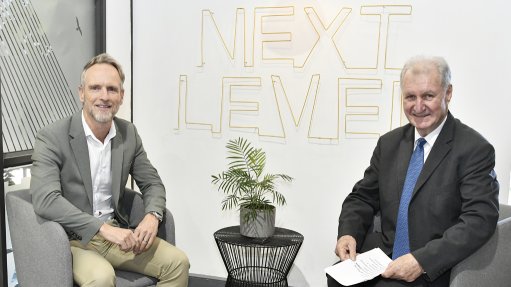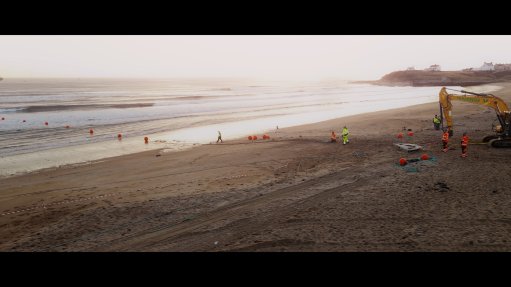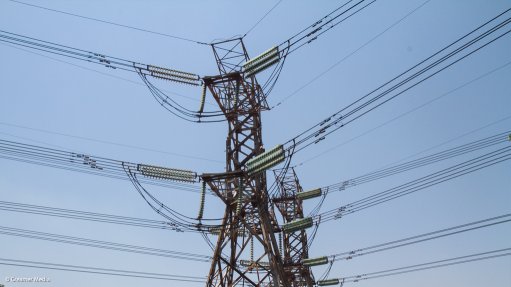Innovative financing: a lifeline for South Africa’s looming water crisis
This article has been supplied and will be available for a limited time only on this website.
By: Emeka Umeche - associate partner and project manager at Ntiyiso Consulting Group
South Africa faces an escalating water crisis driven by infrastructure decay, under-investment and fiscal constraints.
National non-revenue water averages 47% and, according to a joint World Bank and Development Bank of Southern Africa (DBSA) study published in 2024, closing the gap in the water and sanitation sector in line with United Nations Sustainable Development Goal 6 requires R330-billion over the next decade. This figure far exceeds what the fiscus can currently provide.
Municipalities, constitutionally responsible to provide water services, are at the epicentre of this crisis, with many unable to maintain, let alone expand, water networks, according to a 2023 study by Webber Wentzel.
Added to this, the national fiscus is highly constrained. South Africa’s gross debt-to-GDP ratio reached 74% in 2024, leaving limited room for new borrowing, according to 2024 National Treasury figures. Simultaneously, the government’s municipal infrastructure grant, the main capital transfer for local infrastructure, has stagnated in nominal terms for nearly a decade, eroded by inflation and competing social-spending priorities.
Bank lending to municipalities remains constrained by perceived credit risk and regulatory exposure limits.
This funding drought underscores the urgency of innovative financing mechanisms that can mobilise private and institutional capital at scale. The World Bank-DBSA study estimates that South Africa’s total infrastructure needs between 2022 and 2030 amount to R4.8-trillion to R6.2-trillion, covering sectors such as transport, energy and water.
Traditional funding sources can cover less than half of this requirement. Without a paradigm shift, South Africa risks infrastructure decay by default.
At the same time, South Africa’s private capital markets remain highly liquid. The challenge lies in bridging municipal financing needs and investor risk appetite.
Ironically, while the public sector runs dry, private capital in South Africa is relatively abundant. Domestic institutional investors, pension funds, insurers and asset managers collectively manage over R5-trillion in assets. The Johannesburg Stock Exchange (JSE) alone lists over R20-trillion in market capitalisation. Redirecting even a small fraction of this liquidity toward water infrastructure could transform the sector’s fortunes.
However, this would require credible vehicles that match investor risk-return expectations. Instruments such as green bonds, or listed infrastructure funds, provide precisely that bridge.
The JSE already hosts a Sustainability Segment established in 2020 that allows municipalities and public entities to issue thematic bonds adhering to the ICMA Green Bond Principles. The City of Johannesburg’s R1.46-billion green bond proved that South African metros can successfully tap capital markets for infrastructure. Expanding this model to water through “blue bonds” dedicated to sustainable water projects could unlock a new frontier of funding, according to Webber Wentzel.
While market appetite exists, investor caution remains high due to municipal credit risk. Here, development finance institutions (DFIs) play a catalytic role.
Through blended-finance structures, DFIs can offer concessional loans, first-loss tranches or partial credit guarantees that enhance the creditworthiness of municipal or infrastructure bonds, such as the alternative and blended financing mechanisms proposed by the Western Cape Government.
For instance, a 50% DFI guarantee can elevate a sub-investment-grade municipal issue to investment-grade status, unlocking participation from pension funds. The DBSA, in partnership with international DFIs such as the African Development Bank and World Bank, is well positioned to provide these instruments.
Global experience demonstrates that capital markets can be a sustainable backbone for infrastructure. In the United States, approximately 90% of state and local infrastructure, from roads to water systems, is financed through municipal bonds, a market valued at nearly $4-trillion.
In Africa, Kenya’s Laikipia County successfully raised KES1.16-billion (around R150-million) for water and roads infrastructure, the continent’s first county-level infrastructure bond.
The Nigerian InfraCredit model offers an instructive benchmark: backed by the Nigerian Sovereign Investment Authority and GuarantCo, InfraCredit provides local-currency guarantees that have enabled over R8-billion in infrastructure bond issuances since 2017.
Replicating such a facility in South Africa could transform municipal access to long-term, low-cost funding. These examples prove that with proper governance, transparency and DFI support, water service authorities at local government can credibly access capital markets for essential infrastructure.
A viable route to unlocking sustainable investment in South Africa’s water sector lies in establishing a JSE-listed municipal water infrastructure programme that pools projects from multiple municipalities to achieve scale, diversification and investor confidence.
Capital can be raised through sustainability-linked blue bonds tied to measurable outcomes, such as water losses reduced, treatment capacity expanded or households connected, ensuring accountability and impact.
To enhance credit quality and affordability, the programme would need to leverage DFI guarantees, concessional finance and debt-service reserves to de-risk participation and lower borrowing costs. Funds can then be channelled into bite-size, standardised sub-projects supported by technical assistance, ring-fenced revenues and sound municipal financial management.
Ultimately, these instruments should be embedded within a National Treasury-led blended-finance framework, aligning public, private and donor capital to deliver resilient and inclusive water infrastructure nationwide.
Water is rapidly emerging as South Africa’s next systemic risk, economically, socially and politically. Failure to invest now could lead to irreversible consequences: urban water rationing, industrial shutdowns and intensified social unrest.
Innovative financing offers not just a funding mechanism but a governance innovation, imposing transparency, fiscal discipline and performance accountability.
South Africa’s future depends on water security, and water security depends on financial innovation. The window for action is narrowing. Unless municipalities, DFIs and investors co-create these market instruments now, the taps of economic growth may soon run dry.
Emeka Umeche is an associate partner and certified project manager at Ntiyiso Consulting Group. He is a thought leader who publishes and speaks on topics such as infrastructure funding, climate-resilient infrastructure, supporting women industrialists and municipal masterplans.
Umeche holds a Master’s in Civil Engineering from the University of the Witwatersrand and specialises in catalytic projects that stimulate economic growth and enhance infrastructure.
Key accomplishments include securing R49-million for the refurbishment of Matjhabeng Industrial Park; restarting the Schweizer-Reneke wastewater treatment works after a decade; and developing capacity for a water service provider. He is also adept at raising capital through special-purpose vehicles for public sector infrastructure upgrades.
Article Enquiry
Email Article
Save Article
Feedback
To advertise email advertising@creamermedia.co.za or click here
Comments
Press Office
Announcements
What's On
Subscribe to improve your user experience...
Option 1 (equivalent of R125 a month):
Receive a weekly copy of Creamer Media's Engineering News & Mining Weekly magazine
(print copy for those in South Africa and e-magazine for those outside of South Africa)
Receive daily email newsletters
Access to full search results
Access archive of magazine back copies
Access to Projects in Progress
Access to ONE Research Report of your choice in PDF format
Option 2 (equivalent of R375 a month):
All benefits from Option 1
PLUS
Access to Creamer Media's Research Channel Africa for ALL Research Reports, in PDF format, on various industrial and mining sectors
including Electricity; Water; Energy Transition; Hydrogen; Roads, Rail and Ports; Coal; Gold; Platinum; Battery Metals; etc.
Already a subscriber?
Forgotten your password?
Receive weekly copy of Creamer Media's Engineering News & Mining Weekly magazine (print copy for those in South Africa and e-magazine for those outside of South Africa)
➕
Recieve daily email newsletters
➕
Access to full search results
➕
Access archive of magazine back copies
➕
Access to Projects in Progress
➕
Access to ONE Research Report of your choice in PDF format
RESEARCH CHANNEL AFRICA
R4500 (equivalent of R375 a month)
SUBSCRIBEAll benefits from Option 1
➕
Access to Creamer Media's Research Channel Africa for ALL Research Reports on various industrial and mining sectors, in PDF format, including on:
Electricity
➕
Water
➕
Energy Transition
➕
Hydrogen
➕
Roads, Rail and Ports
➕
Coal
➕
Gold
➕
Platinum
➕
Battery Metals
➕
etc.
Receive all benefits from Option 1 or Option 2 delivered to numerous people at your company
➕
Multiple User names and Passwords for simultaneous log-ins
➕
Intranet integration access to all in your organisation





















